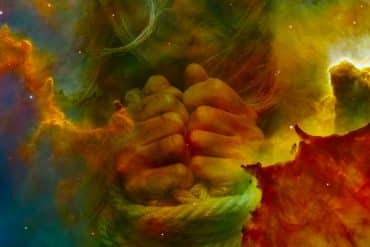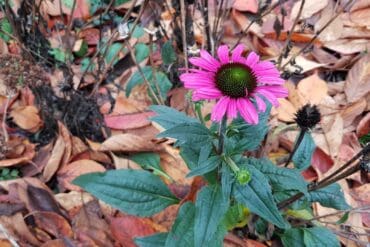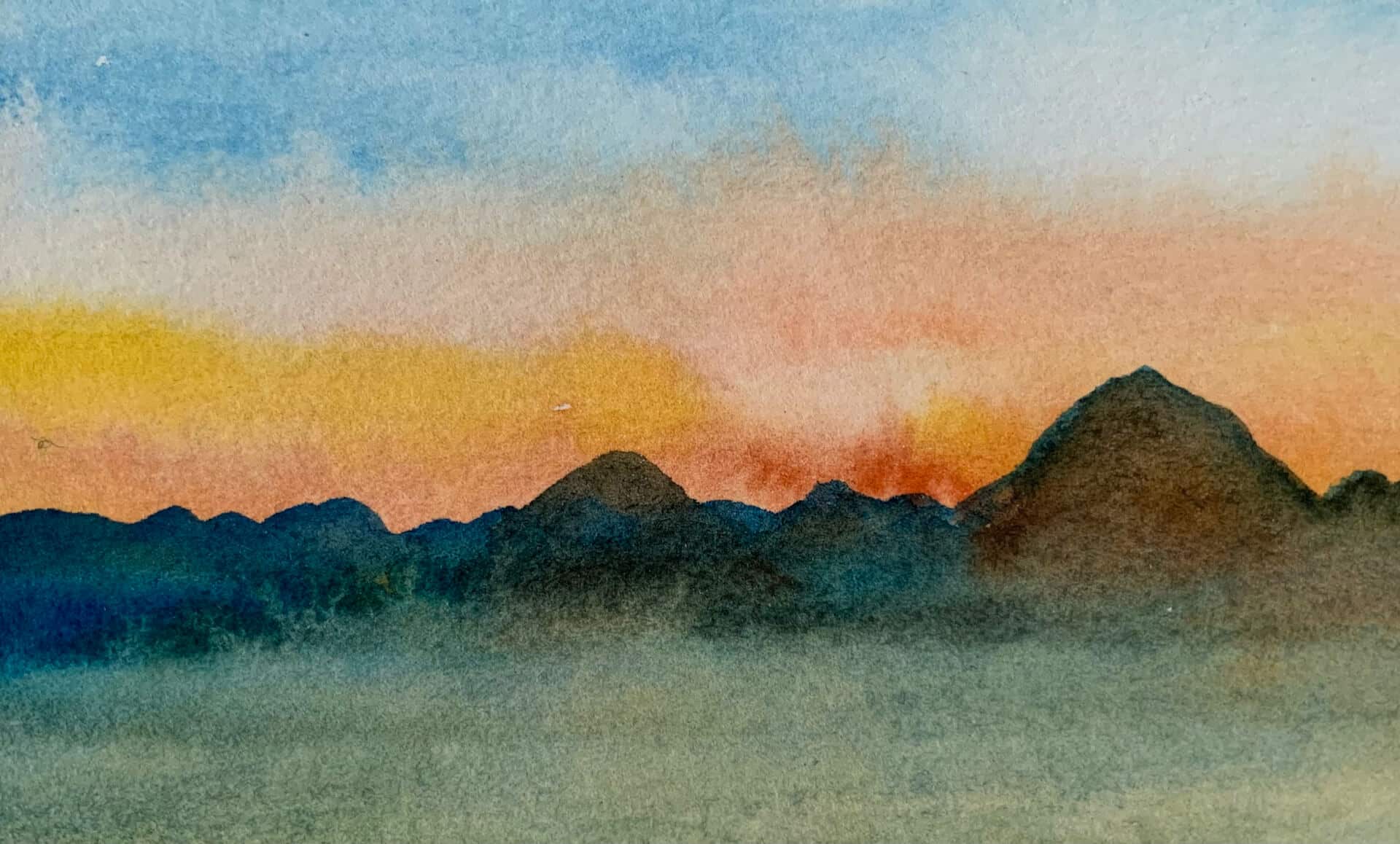We noticed signs of climate change and felt a sense of impending doom, even as we witnessed how human beings across the continent are trying to keep alive a sense of culture, art, and kindness.
AUTHOR’S MEMO
The poems in this collection grew out of a cross-country trip I took with my husband in our 1981 Airstream Excella trailer after my early retirement as a college English professor. I’d sold many of my belongings, as well as my house, and we traveled over several months from Ohio to California, where we’d both grown up.
Along the way, we stopped in various places—a brewery in New Orleans, a winery in Texas, an RV park to visit relatives in New Mexico, Quartzsite, and the Salton Sea. At each waypoint, we noticed signs of climate change and felt a sense of impending doom, even as we witnessed how human beings across the continent are trying to keep alive a sense of culture, art, and kindness. I knew that we ourselves were implicated in these contradictions, burning fossil fuel as we traveled, seeing the effects of that travel, and experiencing at the same time a peculiar and perhaps impossible sense of hope.
For the last month of the trip, we stayed in the southern Sierra Nevada, where we own a small piece of land my parents bought in 1967. This land had originally been used for piñon nut-gathering and hunting by the Tübatulabal people, until the U.S. government deeded it away as homestead land in 1926. Surrounding the land are areas burned out in forest fires exacerbated by climate-change-induced drought, and at the center of it is a small 1959 General trailer that’s slowly being reclaimed by the earth. I spent time while there working on the trailer and thinking about the land, trying to decide what to do with it and what it means to own it in the context of its history.
Throughout the trip, I found myself thinking about trailers, and how they capture something of the peculiarly American urge to travel, to be mobile, to go to the next place, and the next. We were doing that in our Airstream, and—at least at one time—the little trailer on our property embodied that spirit, as well. There’s something hopeful about a trailer, even as we know they’re by design transient and impermanent. Somehow trailers seem to be an apt metaphor for the place we find ourselves in at this moment on this planet: we want to move, to keep exploring, and yet our movement and explorations have consequences, and our conveyances ultimately betray us.
These poems speak from this nexus of movement and groundedness, apocalypse and rebirth, fear and hope. They’re both about travel and about returning home.
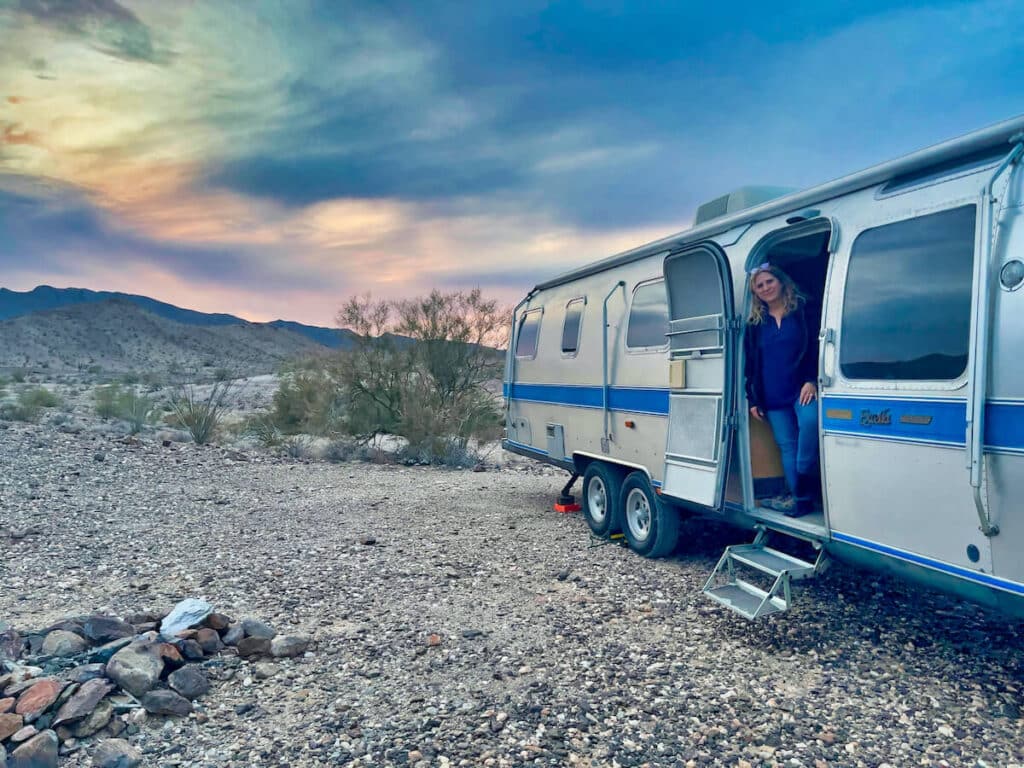
Photo of author and her Airstream by Arun Jain
Almost the End
Signs of apocalypse show up
everywhere as we move
our aluminum trailer
through the landscape,
burning our own share
of fuel into the atmosphere:
broken houses in New Orleans
surround a brewery’s
attempt at Eden;
hunting preserves
in the Texas hills
beacon the wealthiest few,
with oryx and gazelles peering
through camera-watched
barbed-wire fences;
and methane hangs
in the oilfield air
of a New Mexico RV park.
And still we persist.
Still we try.
Still we rise early
to watch each
day’s sun rise.
Post-Consumer
So many houses,
so much furniture,
so many trucks
barreling by.
I’ve stepped off the merry
-go-round, and even
if I wanted I could
never get back on.
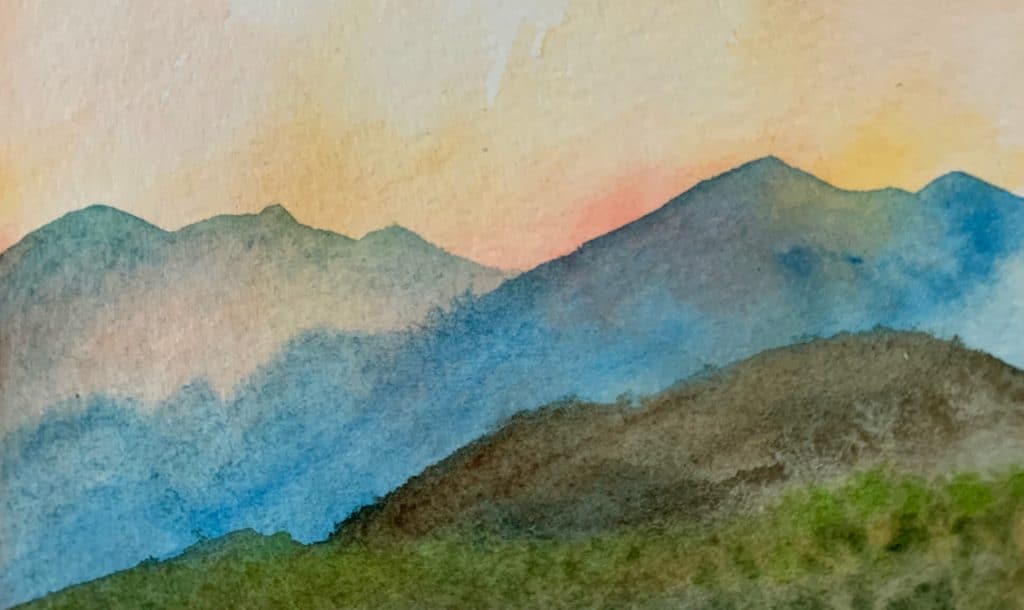
“View from Walker Pass“, watercolor on paper by Vivian Wagner
At the RV Park
We create a Fuzion here
between the Open Road
and the Sunset Trail.
We like a bit of Reflection,
as a Leprechaun does,
or a Puma.
In this Dynasty of Freelanders,
caught up in a Cyclone
of Solitude, we ride time’s
Cougar, snowbirds
practicing elements
of Starcraft.
Conservation
I saw egrets along
the highway,
nestled into
swamps, watching
over ever-
flowing water.
I want to protect them.
I want them to know
not that I’m here,
but that I’m gone.
Quartzsite
The morning light’s a sheen
on mountains, covering
while revealing, shivering
the desert into existence.
We wake, feeling energy
blowing through us, knowing
that we, too, need fuel.
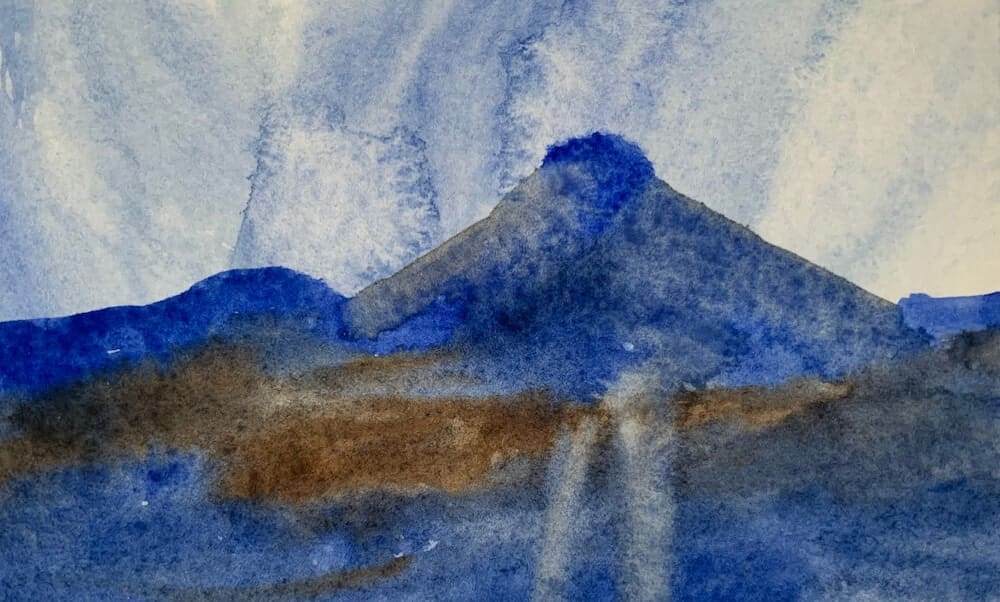
”Sugar Loaf Peak“, watercolor on paper by Vivian Wagner
Sugar Loaf Peak
We climbed the peak’s
steep side,
looking down
at glittering lights
and miles of RVs,
campers, and vans,
scattered like
volcanic rock
through the desert.
This is how apocalypse looks:
not like an end
but a beginning.
Where It Ends
Mountains encircle dry meadows
and fields of sagebrush,
whispering of stars falling,
ground eroding, fires spreading,
and somewhere in one middle
or another stands a tiny trailer,
rotting away into sand
that welcomes it into
rough arms.
Vintage
The trailer barely stands;
remembering through mice
nests and pine needles
what it means to be
part of the earth,
it tilts down.
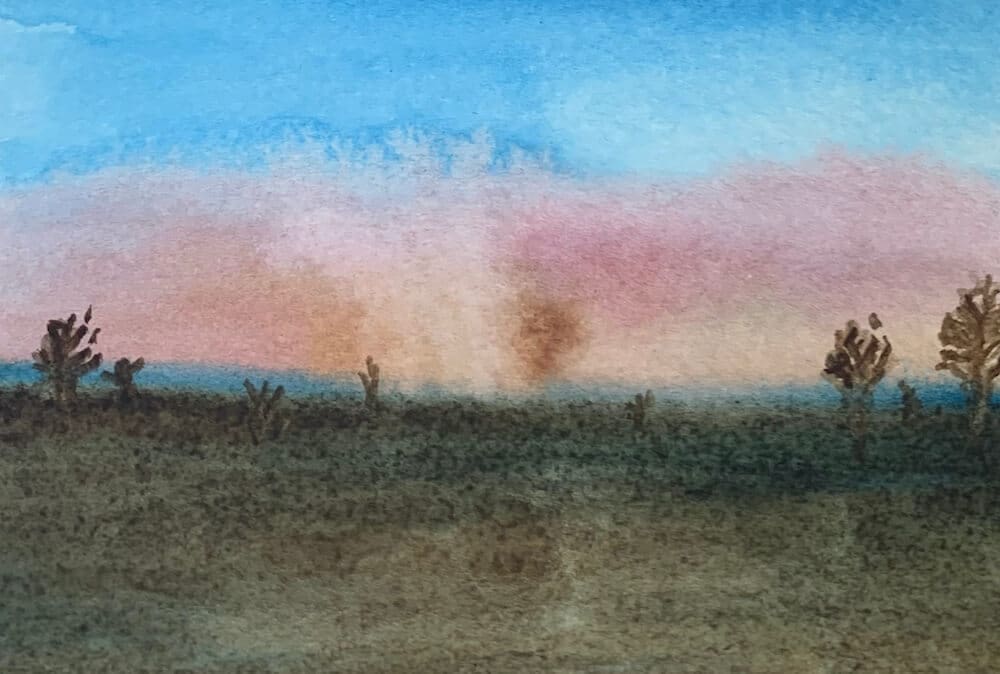
“SKP Ranch Sunrise”, watercolor on paper by Vivian Wagner
What Remains
piñon nuts
flagstones
burned wood
broken trailer
memory of a trail
barbed wire
generator dug-out
dry air
dry air
dry air
Landed
I dreamt something terrible
was happening, something quick
and loud, overhead, and I woke
in the small trailer on remote land
where I’d spent what I thought
were happy childhood days
with my parents, before things
got as I now remember them.
Were there fights there, too?
Undercutting whispers, cruelty?
Or was I sensing something
earlier, when the nation
ripped this piñon-covered
land from tribal hands
and squared it off into
homestead plots?
Or something in the future,
when the burned-out land will be
shrouded in mysterious haze?
My history and the land’s
converge, and that dream
itself is decades-old, now.
All I have is the still-
unaccounted-for
present, and the tireless
surveying of wind.
Featured image, “Sunrise in Quartzsite“, watercolor on paper by Vivian Wagner




